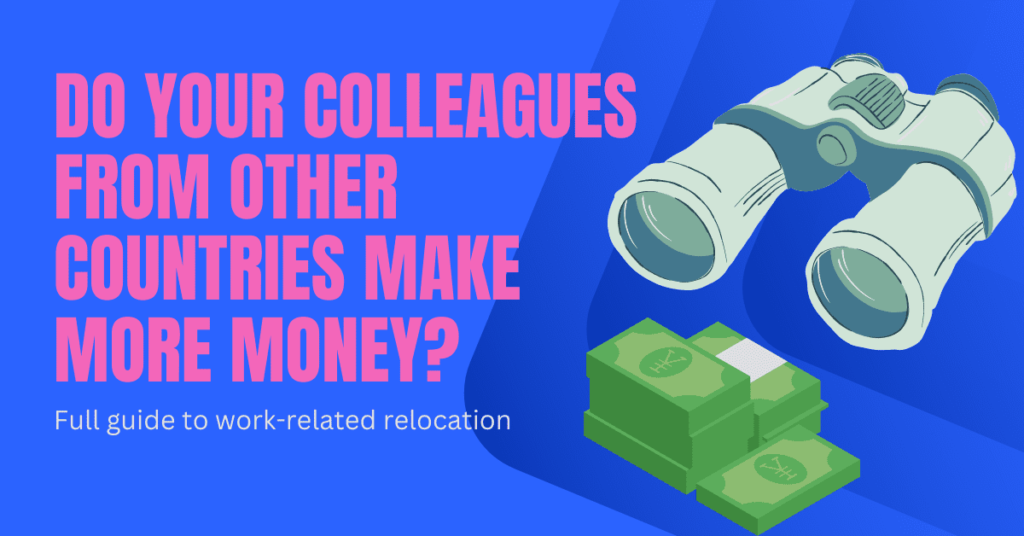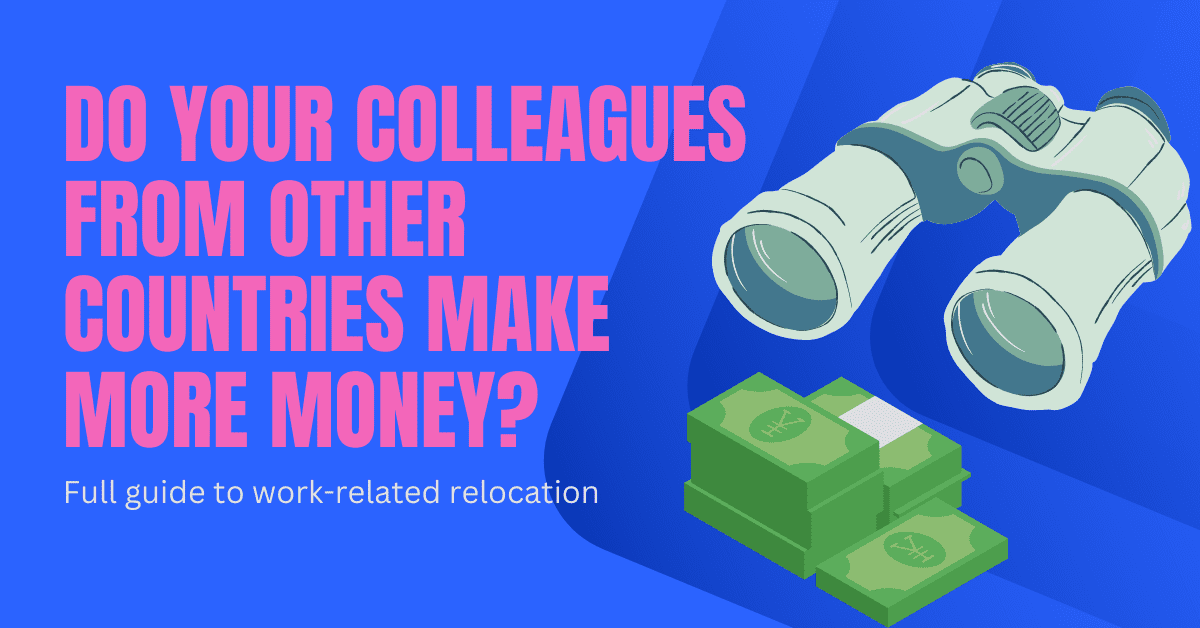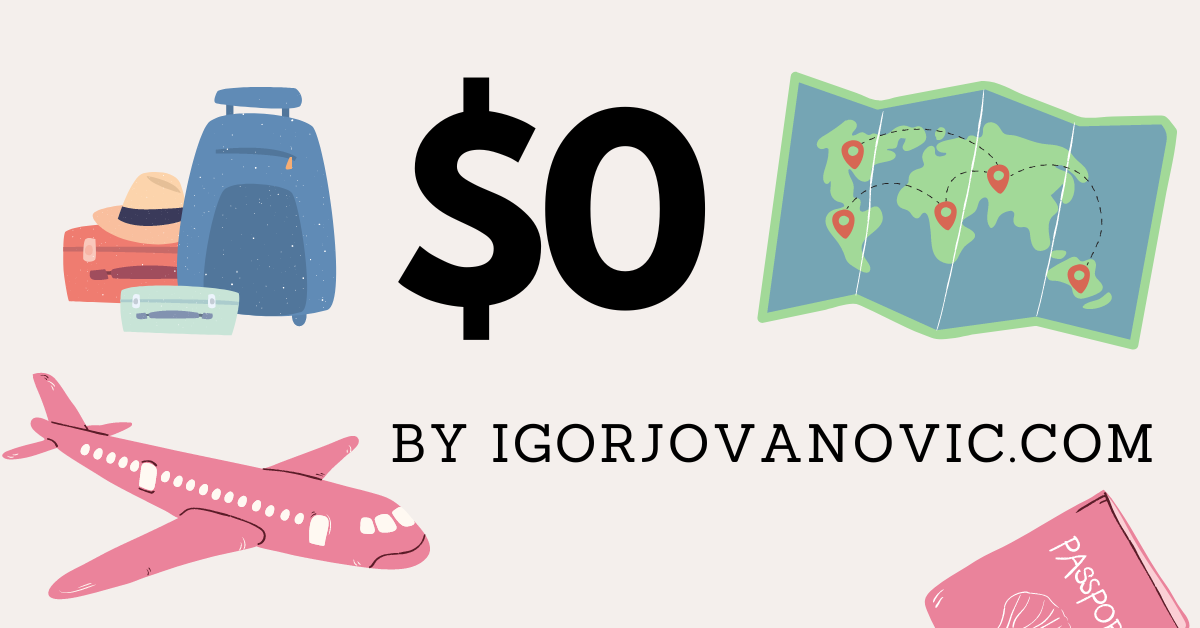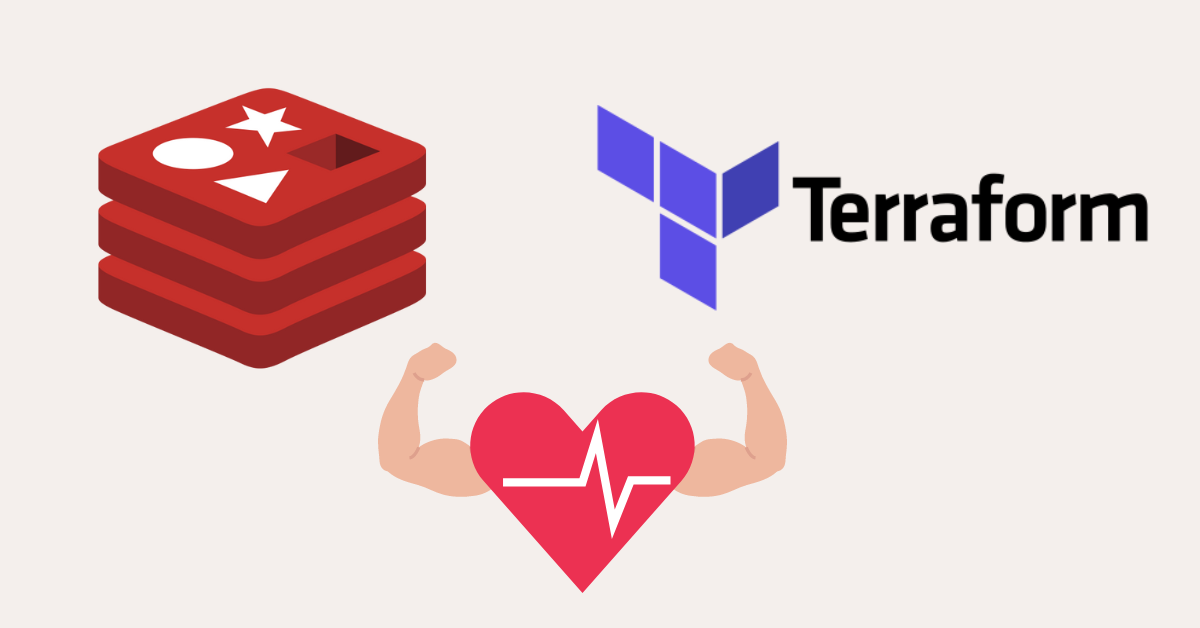
More than 180 million people live and work abroad globally. This is more than half of the population of the United States in 2024. For some immigrants, the relocation paid off and proved a great idea, while others felt like a fish out of water. Here you will learn all the important points of work-related relocation to decide what is best for you in 2024.
In 2017, I decided to look for work abroad and move from Serbia to The Netherlands. Since then, I have lived and worked in most leading Dutch cities (Amsterdam, Rotterdam, The Hague, and Utrecht).

Since I have already gone the relocation path (”been there and done that”), you are getting a chance to learn from someone’s else experience (rather than having your skin in the game).
What are the common mistakes, what is a good salary, and what are other factors to consider besides the salary (social life, family-friendly environment)?
In the end, you will have a “toolset” to help you avoid common mistakes that can ruin the opportunity to change your life for the better. (Every opportunity can be a pitfall — if not used correctly).
I have included an income calculator to show you the take-home income per country (NET income). This is important because you will always negotiate the gross salary (to avoid surprises when you get your first paycheck).
Understanding the destination country
Most people look immediately at the salary of the job abroad… Some make the decision minding only this factor (which is also a big mistake, you will see why).
I know at least a dozen professionals making hefty amounts in the IT industry, but they are still profoundly dissatisfied with their lives. What is the point of relocation if not to feel better overall?
If you do not want to end up in their shoes, I suggest you investigate other factors from this post and only then look at the salary.
Considering the bigger picture, you can feel at home wherever you decide to relocate and benefit from an excellent salary simultaneously. So, a win-win situation.
The weather
It might sound completely irrelevant to the decision, but it is not. You have lived for years in one country and got used to the weather conditions. It has been that long that you are not noticing it anymore because your body has completely adapted.

Before you pull the carpet below your body’s natural processes, you must understand if the country you are considering migrating to has comparable weather conditions (and what it means for you if not).
First to look at is the number of sunny days in a year. You can find an overview of the sunny days in most major European cities here. (On the same site, you can find a similar list for other continents as well.)
For instance, if your home city is Lisbon, Portugal, with 2,799 sunny hours per year, and you plan to migrate to London, United Kingdom, with 1,410 sunny hours per year, you better know this fact upfront.
Thanks to the sunshine, your body produces vitamin D. This vitamin is crucial to your mood, and its deficiency can lead to depression, tiredness, and lack of concentration. You should talk to your general practitioner (GP) before relocating to get the right vitamins at hand.
If you are changing to a country where it rains a lot, it is also good to reevaluate what that means to you. If you have mood swings when the weather swiftly changes, you should pay great attention to this when making the final decision. (For instance, in The Netherlands, sun and rain can take turns multiple times in only one hour).
STORY: Someone I know recently migrated to Luxembourg for work (during the winter months). He has barely seen the sunlight and experienced a lot of rain. He got very moody and could not continue with the work assignment. All this is because he went unprepared and did not consider factors other than the financial reward.
The bad weather can also make you stay inside your four walls a lot… You must understand if this lifestyle suits you. In some countries of the northern hemisphere, it is just impossible to be out a lot (except for the necessities). Because of it, a big part of the year you will spend inside your house (especially autumn and winter).
Social interactions
One can acquire everything in solitude except character.
Stendhal
This quote shows that you cannot form a personality without people around you. (Personal traits always form in interaction with others.)
Social interactions are not optional and deserve a high rank when making the relocation decision. Generally, you should look at social interaction habits in your home country (or where you have spent the last 10+ years of your life).
Some useful questions to ask:
- do people hang out in groups bigger than 2
- on a train or bus, do people talk with each other, or is it dead silence
- in school, on an exam, would your friend tell you the correct answer to a question
- do you share food in a restaurant (for others to taste it)
- do you have to plan a meeting (or a phone call) with a friend a few weeks in advance, or is it a more spontaneous process
- is it common to call a friend at 10 pm if your car battery dies, or would you call a road emergency company
Based on the answers, you can figure out if your home country is leaning more towards collectivism (people doing things together) or individualism (everyone is an island on its own).
Serbia is a country where people usually do things together (collectivism). The Netherlands is on the opposite end (an individualistic country). Because of that, I had several cultural shocks in the first two years after my move.
Now, I am not saying that one is better than the other. What I am saying is that you should look before you leap and understand if there are cultural differences of this sort. This will help you avoid awkward moments once you relocate to another country. (Preparation is half the battle).
You can find many social interaction habits of the destination country if you browse spaces on Quora.Com. It is a great source for understanding the social norms of other countries. You can then see if the norms are acceptable or if you think you would feel like you are in no man’s land.
The total cost of living
However high the potential salary in the destination country might be, you should look at the expenses first. What matters is the money that ends up in your pocket rather than the figure on the contract.
The salary that seems very high might translate to peanuts once you deduct the expenses. (Yes, even if you are in the tech industry.)
Housing

One of the largest expenses you will have abroad is housing expenses. A good start is to investigate the monthly (all-in) price you would pay abroad for an apartment similar to yours.
In countries with a high demand for apartments (like The Netherlands), it is not enough to pay the monthly rent only… When you sign the rental contract, you must deposit approximately two to three times the monthly rent. (So, you need some cash savings).
Also, there will be additional costs like cleaning, and in some countries, tenants even pay the property taxes intended for the owner (e.g., in Israel).
TIP: Make sure you ask for the all-in costs to avoid surprises. Also, it is always better to rent an apartment from an agency because your deposit is safer. (I have seen landlords not returning the deposit for vague reasons.) If you decide to look for an apartment yourself, you might save some money, but you can get headaches later.
Transportation
Once you settle down in a country, you take some things for granted. Your car, for instance, or public transport in the city where you live.
An important aspect to consider before you relocate is the transportation rules in the destination country. For instance, how much taxes would you pay for car ownership and insurance per year? What are the costs of car maintenance abroad? What is the price of parking?
STORY FROM A GARAGE: At the garage, upon my relocation to The Netherlands, I was told that I had to buy brand-new tires for all four wheels. When I asked why, since I could not see the worn-out tires, the mechanic asked what country I came from. He said that in Serbia (and in his birth country – Turkey), I could go on with those tires for one more year at least, but in The Netherlands, the rules are different, and you cannot extend the plates if the car is not 100% perfect (while taking EUR 400 for the new tires).

Parking possibilities are another important factor to consider. In the city center of Amsterdam, you would pay EUR 7.5 per hour to park on the street. Unlike in Serbia, where you can try your luck by not paying the parking ticket, in The Netherlands, you get a fine that is not worth taking the risk. This, of course, depends on how risk-averse you are.
If you are not driving, you might be using public transport to go around. Some countries subside public transport heavily, and the tickets you pay are extremely cheap (compared to what they should be). To avoid surprises, try to understand the public transport costs at the destination country.
A monthly ticket in some countries, such as The Netherlands, can go up to EUR 500. Also, a single tram/bus ticket in The Netherlands is around EUR 4 (1h ticket). In Serbia, for instance, a 1h ticket costs less than EUR 1.
Medical expenses

If you are considering relocation, you must understand the health system of the destination country. This factor becomes even more important if you have chronic problems or are seeing a specialist often.
Most of the EU’s (European Union’s) countries have health insurance widely available. You usually pay a relatively small monthly insurance premium, and 99% of health-related situations are covered.
Still, within the EU, there are different medical cultures. For instance, in the Netherlands, the general practitioner handles 99% of complaints while they send you to the hospital only for urgent matters. Also, you get to pay if you call emergency medical care if it turns out it is not serious enough. In Germany, for instance, a friend of mine who is a doctor says that she gets cases where people call the emergency for nothing at 3 a.m… And they pay nothing for it…
On the opposite, the U.S.A. is a country where you would pay through the nose (compared to the EU) for similar treatments. There, you pay first and only then do you get treatment (hospitals have those small machines that they roll to your hospital bed so that you sort out the financials first). Here, it is crucial that you have premium health insurance so that you do not get in a position to pay it yourself.
Even if you are completely healthy, investigate the health system of the destination country, as this can save you a lot of money (and your life in some cases).
Cutting corners and free lunch
We all sometimes take shortcuts and play the cards of luck. For instance, you can leave your car parked without extending the parking ticket for another hour in the hope that you will get lucky.
The term “free lunch” comes from economics and means that everything has related costs (even if these are not immediately visible). Therefore, you cannot get anything for free.
In some countries (such as Serbia, for instance), you can park and not always pay for the ticket. The chances are not that great that you will pay a fine. Also, you can use public transport at almost no cost (if you are cautious enough).
Depending on your home country, you might also still be enjoying some “free lunch” due to the inefficiency of the country to identify the “free riders.”
You must change these habits if you move to a more developed country. In these countries, there is no “free lunch,” literally, and you must pay for everything. So, one additional point that will reduce your take-home money.
A story that illustrates this situation comes from the Dutch highways… Once I was riding my motorbike and saw the signs for the speed limit with a small text below that said (“the accuracy of radars ahead is 100%). Yes, you read it correctly. Not 90%, not 95%, or 99% but 100%. And you do not know where the radars are exactly.

For some friends, this meant paying around EUR 1,000 per year on traffic-related fines. And it does not take a lot to get to the same position if you only relax. (I got multiple fines for driving 3-4km/h faster than the limit).
FUN FACT: A Dutch friend of mine is never paying an add-on for the fast train line. In The Netherlands, you pay a ticket add-on of approximately EUR 2 if you want to use the direct line (the regular ticket + the extra addon). Once we were together on the train, he got fined on the spot EUR 10 (for not having the addon). He had EUR 10 prepared in cash and was smiling while paying the fine… Then I asked why he seemed so happy while being caught… He explained that one in ten times he gets caught, and he pays EUR 10 for the fine while the addon would cost around EUR 20 in total.
Even though there are some marginal cases where you can get away with your “crime” it is not the best long-term strategy.
Remember that there is no “free lunch,” and your take-home money will be significantly higher. Find out what the rules are and respect them.
Family relocation
If the decision factors do not raise any red flags, you might relocate to earn a better salary (more on the salary shortly).
In case you have family, you will have to account for their needs as well.
Some bullet points to consider in this case:
- Kindergarten/babysitting costs
- Tuition fees for primary/secondary school or university
- Educational institutions ranking
- The minimal size of the apartment for family
- What are decent neighborhoods for families
- Visa possibilities for your partner and your kids (can they get one under the family reunion process)
- Work possibilities for your partner, based on the visa they can get
- Years to obtain permanent citizenship/nationality for you and your family
Pay particular attention to the non-financial factors if you are relocating with kids. For instance, a drastic change in social circles (e.g., friends, schools, sports clubs) can cause psychological harm to kids and teenagers.
All in all, relocating with family adds more items to worry about, but still, you feel less lonely. When difficulties come, their support will be crucial, knowing that you are doing all of this for a higher cause.
USEFUL: Here is a good article that ranks all the countries on an expat-friendly list. This list accounts for all the important aspects, including salary, quality of life, health sore, happiness, and others.
Programmer salary abroad
The grass is always greener at your neighbors. Sometimes, this can lead you astray, but not in the case of salary. It is no secret that you could make significantly more in the same position abroad (with the same knowledge).
As long as you consider other factors as well (as we did it here), there is nothing bad in going after the better-paid job.
Some countries are tech hubs, and their governments understand that the IT industry is the future industry. Because of this support, investors are putting large sums of money into the tech sector (especially if it is a safe country with low crime rates, such as The Netherlands).
This only means that some countries can pay more technical staff than others.
With all this money being thrown around the IT sector, why would anyone work in a country where you make only a fraction of what you could make? Why not use the opportunity to get a bigger slice of cake?
Here is one small example of letting the numbers speak for themselves.
If you make EUR (or USD) 1,500 NET per month in your home country for 30 years, you will make a total of EUR (or USD) 540,000 during your lifetime. Now let’s check the other possibility. If you relocate to a more developed country, you could make at least EUR (or USD) 2,500 NET per month (for the starting position). The total, in this case, is EUR (or USD) 900,000 for 30 years.
(If you want to start learning to program, click here to read my post on Python beginner’s guide.)
Even with this naive calculation, you make almost double. And this does not even account for the fact that you will advance from the starting position after the first year.
At the end of this post, you will find the income calculator that shows you the take-home money for any given gross salary. (Salaries are almost always negotiated in the gross amount per year).
To have a rough picture of what you could be making in a tech position, here is a table that shows average GROSS salaries per country (per year). (You can enter those in the calculator and find out what gets to your pocket).
| COUNTRY | SALARY (USD) |
|---|---|
| United States | $110,140 |
| Switzerland | $97,518 |
| Israel | $71,559 |
| Denmark | $63,680 |
| Canada | $61,680 |
| Norway | $57,013 |
| Australia | $55,640 |
| United Kingdom | $55,275 |
| Germany | $52,275 |
| Sweden | $50,437 |
| Ireland | $48,427 |
| Finland | $47,850 |
| The Netherlands | $45,180 |
| France | $43,849 |
| New Zealand | $42,399 |
| Singapore | $41,864 |
| Argentina | $39,898 |
| Japan | $36,024 |
Summary
Many people make relocation decisions based on salary only. Some regret life once they realize that a good salary is only one piece of the puzzle.
To help you avoid the mistake, this post showed you the list of factors that you must consider so that you can make an informed decision.
Some of the factors to consider include the weather in the destination country, the social interactions there as well as the costs of living (transportation, housing, and medical expenses). Only after making sure that these fit you (and your family) should you look further into the salary.
Salary is, of course, very important, and in some cases, you can make more than double in the same job position abroad.
At the bottom of the page, there is a calculator to help you understand what you can make abroad in a tech position.
After calculating the net income per month, you will have everything you need to make informed decisions (and avoid common mistakes).
Write a comment if you think that I have forgotten to add any other important aspect or if you have different experiences.
How to use the calculator
Select the destination country and use the blue scroll button to scroll left and right until you reach the desired GROSS salary. The income calculator will report the NET salary per year and the NET monthly salary (take-home money).
NOTE: The calculator can be used for positions outside the tech industry as well.
Calculator
Showing income calculator for Australia
Net income per Year:
Net income per Month:


 Austria
Austria Belgium
Belgium Croatia
Croatia Cyprus
Cyprus Czech Republic
Czech Republic Denmark
Denmark Estonia
Estonia Finland
Finland France
France Germany
Germany Ireland
Ireland Luxembourg
Luxembourg Norway
Norway Poland
Poland Portugal
Portugal Spain
Spain Sweden
Sweden The Netherlands
The Netherlands The United Kingdom
The United Kingdom Australia
Australia New Zealand
New Zealand Canada
Canada United States
United States Japan
Japan Singapore
Singapore




